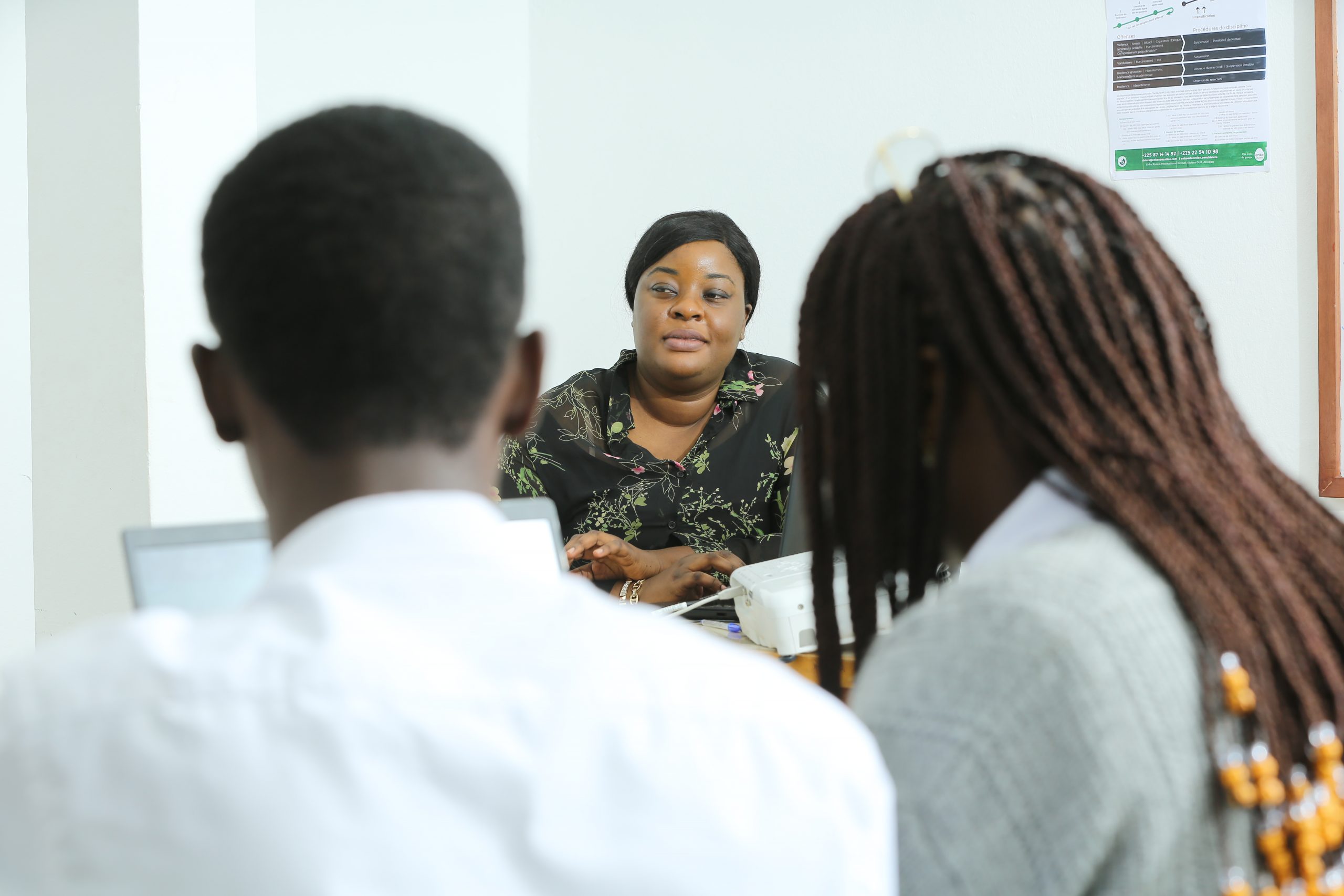The 7 Essential Tips for Studying Abroad
Make your dreams come true!
Stephanie Mbailassem is a young girl from Chad who dreamt of bringing a positive change in her community. In 2014, she joined the first cohort of Enko La Gaieté, in Yaoundé. At that time, she barely spoke English and was very shy. Three years later, she got admitted into the Hult Business School in the USA.
You are probably wondering how she got this life-changing opportunity. Obviously, she worked very hard. But she also benefited from the support of Knowledge for College, a series of webinars animated by Enko Education’s University Admissions Counsellors and international experts. Held twice every year, this programme aims at preparing African learners for their application to international universities.
Studying abroad has become a classic step in the education of young African graduates. The advantages can be numerous, both academically, with a wide range of international curricula, and personally, with valuable human development.
From choosing the right university and programmes, getting a scholarship, or learning a new language, you will need to plan and prepare everything thoroughly. And if you are wondering how to go about it, don’t worry. Here are some tips for you to get admitted to the university of your dreams!
Unlock Your Potential
Our guess is that by the end of your final year, you would have already thought about your career path. If not, don’t panic! Identifying your favourite subjects in high school can be a good starting point to unlock your potential. For example, if your top two subjects are biology and chemistry, you might be a good fit for a career in medical science or nursing. For more insight, you can always take a quiz online to help you choose your dream job.
Secondly, you should consider meeting your high school counsellor to get personal advice in order to narrow down your options and guide you for college admissions.

Thirdly, exploring lists of trending careers online will give you more insights into the fastest-growing jobs. While the sole purpose of choosing a career is not only financial stability, it is always important to know if your choice will turn you into the next Bill Gates.
Choose a University
One of the most exciting things about studying abroad is that you have thousands of universities to choose from. You should start by researching top universities per subject with tools such as the QS World University Rankings by Subject. After shortlisting universities, check their websites for official information about their costs, admission requirements, and life on campus.
As an international student, it can be difficult to see the university and meet its staff face-to-face before making your choice. But you can still get in touch with them online or in your home country during fairs and open-door days. If you want to study in France for example, Campus France is the go-to place established in almost every country worldwide where you can get all information on higher education in France.
Moreover, nothing beats having a chat on LinkedIn and other social platforms with alumni to know their study abroad experience. Not only will this boost your confidence, but you will get insider tips on finding affordable accommodation, small jobs, sports clubs, etc.
Put all the odds on your side!
Getting admitted to the world’s best universities is not an easy task for international students. They need the right preparation to face the very demanding application process and eligibility requirements of these universities. It goes without saying that good grades in high school and sometimes in an entrance exam (medical studies, law, etc.) are a must. Some universities have specific minimum GPA requirements, at least 2.5 to 3.00 GPA, that you must meet in order to get admission. Besides, other accomplishments such as leadership, community involvement, and extracurricular activities are also valued. To put all the odds on your side, it is always better to seek more tips and valuable advice from your university counsellors.
Shelly Jain, Deputy Head of University Admission at Enko Education tells us more about the work of University Counsellors in preparing students to study abroad: “We connect with universities and create a foundation to have information regarding admission, scholarships and eligibility requirements. We then organize workshops, and fairs and use other tools to pass all the information we received to our students. We provide them with tips on how to make a career choice and choose an IB profile as well as all the criteria they need to think of before searching for a university. Our work also consists in educating parents and students on how the application process is different in each country.”
Degree Equivalence
Education systems vary from one country to another. A high school diploma obtained in some African countries may not be recognized in European and American universities. Depending on the grading system of the country you wish to study in, you may also need to convert your grades or even get your transcript translated into another language.
Make sure your degree or diploma is accepted by your prospective university before applying. If you have any doubts, contact the university admission department.
Learn the Local Language
Being fluent or having at least a basic understanding of the language spoken in your chosen destination is a must to avoid any miscommunication. One of the requirements to get admitted to universities abroad is the language proficiency test. For English-speaking universities, for example, common proficiency tests are the IELTS and TOEFL. Similar tests exist for countries such as Germany where the TestDaf is often required while the TCF DAP is needed to be admitted to French universities.
Nowadays, English has become a widely used language worldwide, especially for instruction in a number of countries (graduate programmes and business degrees). Therefore, knowing English will always be a great advantage if you want to study abroad.
Get Financial Aid
Let’s be honest! Studying abroad may not be affordable for all. From paying school tuition to finding accommodation, things might get tough for you if you are on a small budget. The good news is that most universities abroad offer fully funded scholarships which can cover the whole programme or just a semester. You can also apply for government-funded scholarships. The German government through the DAAD usually provides scholarships to international students. However, don’t overlook smaller scholarships that can still help offset the cost of your studies abroad. Looking for a student job might also be of great help to make ends meet.
The world is your oyster!
One of the requirements to obtain your visa as a student is getting an admission letter from your chosen university. You should thus send your application earlier enough by preparing all the required documents to avoid any last-minute inconvenience. Other requirements include providing a valid passport, proof of financial means, previous school records, health insurance, and civil documents.
Studying abroad is a life-changing experience that can help you build your future and your country’s growth. To put all the odds on your side, you should conduct deep research based on factors such as your career path, your budget, the university’s requirements, etc. Moreover, do not hesitate to require support from your school’s admission counsellor team!








